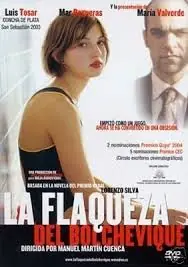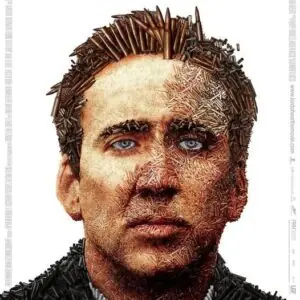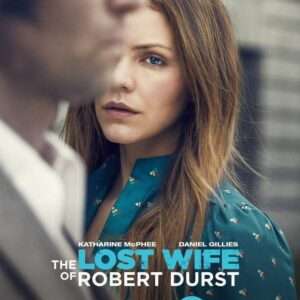Walter Salles’ 2012 adaptation of On the Road, the long-awaited cinematic version of Jack Kerouac’s genre-defining Beat Generation novel, is a film of ambition, beauty, and reverence. It faithfully recreates the look and feel of post-war America, its highways bathed in sunlight, its characters youthful and raw, and its dialogue steeped in idealism. Yet, for all its surface energy, the film struggles to fully capture the chaotic spirit and internal rhythm that made the novel so revolutionary.
While On the Road impresses in its dedication to the source material, it often feels more like a museum exhibit than a living, breathing story. What emerges is a visually rich and well-acted film that, despite flashes of brilliance, ultimately never quite takes off.
Plot Summary: Movement Over Destination
Like the book, the film follows Sal Paradise (Sam Riley), a young writer in 1940s New York, as he embarks on a series of road trips across the United States with his charismatic, troubled friend Dean Moriarty (Garrett Hedlund). Inspired by the real-life relationship between Kerouac and Neal Cassady, their travels take them from New York to Denver, San Francisco, and Mexico, through drug-fueled nights, jazz clubs, spontaneous hookups, and occasional literary breakthroughs.
The road is both literal and metaphorical—a symbol of escape, of freedom, and of spiritual searching. Along the way, Sal and Dean meet a wide range of characters: Marylou (Kristen Stewart), Dean’s free-spirited teenage wife; Carlo Marx (Tom Sturridge), based on Allen Ginsberg; and Old Bull Lee (Viggo Mortensen), a stand-in for William S. Burroughs.
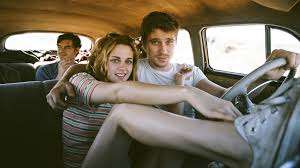
But On the Road is not driven by plot in the traditional sense. The narrative is episodic, and the energy ebbs and flows as Sal and Dean chase highs—both emotional and chemical—in an increasingly frantic attempt to find meaning in post-war America.
Performances: A Mixed but Committed Cast
Sam Riley plays Sal with a quiet intensity, serving more as an observer than a protagonist, which stays true to Kerouac’s portrayal of himself in the novel. Riley captures the detached awe of a young man witnessing both beauty and self-destruction, but his performance occasionally lacks the magnetic pull necessary to anchor the film emotionally.
Garrett Hedlund as Dean Moriarty is a standout. He embodies the reckless, magnetic, deeply flawed energy of Dean with physicality and a dangerous charm. His performance conveys the inner conflict of a man who can’t sit still, who lives moment to moment, yet is haunted by his own inability to commit—to people, to purpose, to love.
Kristen Stewart, often underrated, delivers a surprisingly strong performance as Marylou. Her role is one of the most tragic in the film—used, discarded, but never entirely broken. She plays Marylou with a blend of youth and weariness that’s compelling, even when the script gives her little to work with. Other supporting roles, including Sturridge, Mortensen, Amy Adams, and Kirsten Dunst, are uniformly solid, if a bit underutilized.
Direction and Cinematography: Stunning but Detached
Walter Salles, best known for The Motorcycle Diaries, brings a lyrical visual style to On the Road. He captures the beauty of the American landscape with longing and awe—the sunlit highways, vast deserts, smoky jazz bars, and lonely motels all contribute to a romanticized yet gritty portrait of a country in flux. The cinematography by Éric Gautier is consistently stunning, giving the film a nostalgic, sepia-toned palette that evokes memory and loss.
The film’s pacing is intentionally uneven, mimicking the stop-and-start rhythm of road life. There are stretches of brilliance—moments where the characters connect, where the camera floats like a jazz solo—but too often the narrative spins its wheels. The viewer is shown the lifestyle of the Beats without always being invited into their emotional experience. The film often tells rather than shows the emotional stakes, leaving the audience detached from Sal’s inner world.
Themes: Freedom, Loss, and the American Myth
On the Road is deeply concerned with the search for meaning in a society recovering from war and teetering on the edge of cultural revolution. It’s about people who refuse to live life by the rules, who value experience over stability, and who measure life by intensity rather than longevity.
But unlike the romanticized version of the American road trip, the film does not shy away from the darker undercurrents. Dean’s charisma is seductive, but his actions often leave destruction in their wake. The film subtly critiques the emotional consequences of living without roots. Love, family, and even friendship suffer when freedom is worshipped above all else.
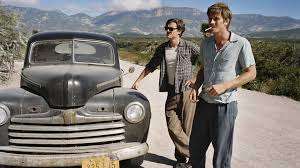
There’s also a strong thread of disillusionment. As the road continues, the characters seem to grow more aimless, more damaged. The same experiences that once seemed exhilarating begin to feel hollow. The idea of America as a land of possibility slowly gives way to a more sobering reality.
Faithful to the Book, to a Fault
Fans of Kerouac’s novel will find much to appreciate in the film’s fidelity to the text. Many passages are lifted directly from the book, and the tone of poetic introspection is carefully preserved. But that same loyalty may be what ultimately limits the film.
Kerouac’s writing was revolutionary not just because of what it said, but how it said it—his spontaneous prose, the rhythm, the musicality of the language. Translating that spirit to screen is a nearly impossible task. Where the novel lives in the head and heart, the film often feels like an external reenactment, beautifully photographed but emotionally distant.
Conclusion: A Visually Striking but Spiritually Incomplete Adaptation
On the Road is an admirable effort—crafted with care, beautifully shot, and filled with sincere performances. It does justice to the look and mood of Kerouac’s world, and occasionally manages to capture the rush of youthful rebellion and raw, unfiltered life.
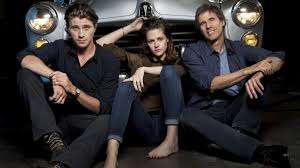
But for all its visual poetry, it doesn’t quite ignite. The film captures the external journey but misses some of the internal pulse that made On the Road such a literary milestone. It’s a movie of moments, not momentum; of ideas, not impact.
In the end, On the Road is a film best appreciated for its ambition and aesthetics rather than its emotional resonance. It takes us on a journey, but one that feels more observed than lived.
Rating: 6.5/10 – A visually beautiful, well-acted adaptation that honors the novel’s surface but struggles to translate its soul.
